Having insect pests around your house can be both irritating and terrifying. Aside from the fact that they can cause damage and destruction to your home structures, they are also viable carriers of illnesses and diseases. This is the reason why many households buy pesticides so that they can eliminate and deter the presence of these annoying insects.
What is a pesticide? A pesticide is any substance or chemical compound that can exterminate, prevent, mitigate, and repel insect pests. These creatures are known to cause damage to house structures, food items, agricultural crops, and ornamental plants, so there is a need to control them through the use of pesticides.
Now that you have learned the comprehensive definition of pesticides, let us delve into other important matters about this product by knowing its types, how it works, its effects on humans, animals, and the environment, and the natural alternatives when they are not used.
What Is a Pesticide?

The word ‘pesticide’ comes from the root word “pest,” which is defined as a creature that can cause damage, economic impairment, and diseases to humans and animals, and “side,” a Latin word for the act of killing. It is generally applied to insect pests to repel, deter, mitigate, and prevent their infestation.
Not only that, but it also functions as a plant regulator, nitrogen stabilizer, desiccant, and defoliant. It is typically used in numerous households, farms, and other residential and agricultural settings to lessen the risk of pest infestation. If not managed right away, it may lead to health issues, structural damage, and food spoiling.
What Ingredients Are Found in Pesticides?
Each pesticide product contains active ingredients and inert ingredients.
1. Active ingredients – Group of substances that control the growth and population of pests, which can either be antimicrobial or those that destroy bacteria, viruses, fungi, and other harmful microorganisms and inanimate objects; biopesticides or those made from natural elements and materials; and conventional or those that are neither antimicrobial nor biological in nature.
2. Inert ingredients – Other pesticide constituents that are essential for their effectiveness and performance. This includes cellulose, spices, herbs, beeswax, oils, and other commodities that are combined with active ingredients for a pesticide to work.
Furthermore, pesticides are regulated carefully and evaluated periodically by the appropriate government authorities as it contains chemicals that may be hazardous to humans. To ensure that a product is a pesticide, look for its content. This can be done by reading the claims on their labels and finding out their mechanism of action, use, and composition.
Types of Pesticides
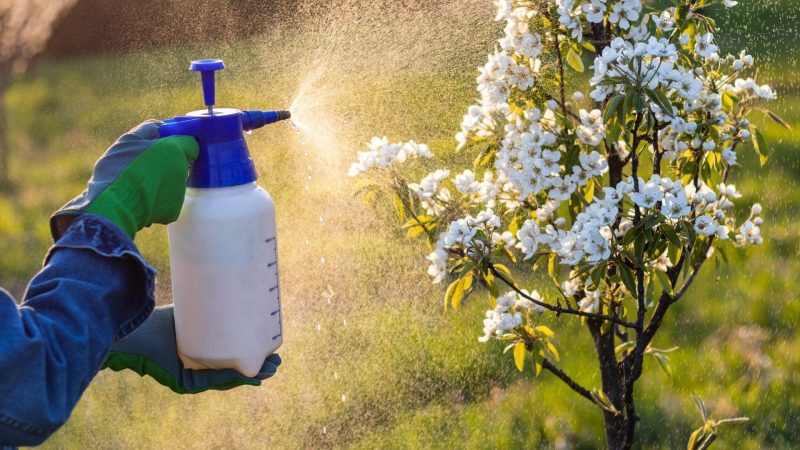
The following are the types of pesticides that are widely used by household, building, and farm owners:
- Herbicides: Those that kill and prevent the growth of weeds and other undesirable plants.
- Algaecides: Those that kill or suppress the growth of algae.
- Fungicides: Those that control and prevent the growth of fungi in the form of mildew, rust, and molds.
- Insecticides: Those that exterminate insects and prevent their infestation.
- Miticides: Those that deter the growth and spread of mites.
- Ovicides: Those that regulate and suppress the growth of insect and mite eggs.
- Molluscicides: Those that exterminate and control the presence of snails, slugs, and other kinds of mollusks.
- Rodenticides: Those that control the spread of rats, mice, and other rodents.
- Nematicides: Those that kill and control nematodes.
- Foggers: Those that release toxic fumes and substances that can help in the control of insect pests.
- Insect Growth Regulators: Those that suppress the further growth and reproduction of insects.
- Pheromones: Biological chemicals that attract and entice insects and interrupt their mating habits.
- Synergists: Those that become effective when utilized with other types of pesticides.
How Do Pesticides Work?
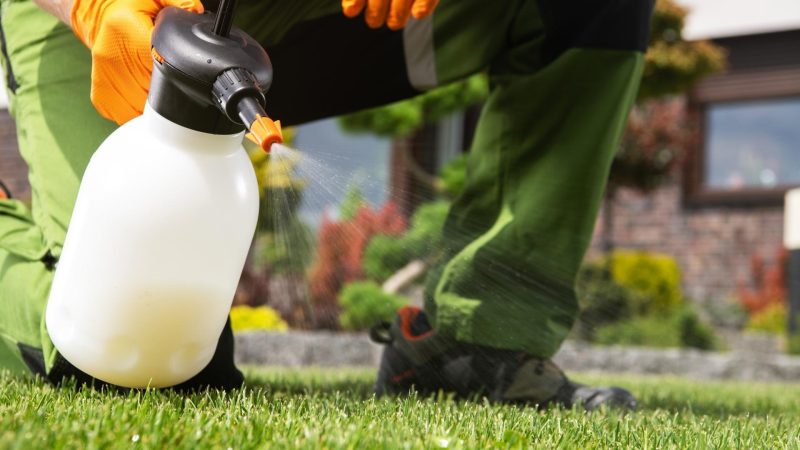
The functions and effects of pesticides may depend on their type and classification. For example, most insecticides work by disrupting the nervous system, inhibiting nerve pulse transmission, disturbing digestive functions, and interrupting the progression of insects.
Some of the functions of pesticides are the following:
- Rodenticides: Operate by affecting the normal blood clotting of rodents through poison traps and baits, fumigants, and tracking powders.
- Fungicides: Averting the germination of spores and penetration of hosts or slowing down the reproductive activities of fungi.
- Herbicides: Limiting the growth and emergence of seeds or restricting the cell division that may occur during the germination of weed seeds.
In general, pesticides work by directly killing or suppressing the growth and reproduction of insects, rodents, mollusks, nematodes, mites, algae, fungi, unwanted plants, and other varieties of pests.
Can Pesticides Be Harmful to Humans?
Pesticides can be harmful to humans. Frequent exposure to its contents can give rise to the following:
Short-Term Adverse Health Effects
Those that appear within a brief duration. Immediate health effects of pesticide exposure include rashes, blisters, burning, stinging, itching sensation on the skin, irritation of the nose and throat, nausea, diarrhea, and feeling of dizziness.
It may often resemble symptoms of colds, flu, and other illnesses, so pesticide poisoning is constantly misdiagnosed and mismanaged. Also, people with asthmatic conditions may be affected severely, particularly those who are allergic to carbamate, pyrethrin/pyrethroid, and organophosphate pesticides.
Long-Term Adverse Health Effects
Those that occur after months or years of chemical contact. Its consequences consist of cancer, birth deformities, toxicity, and disruption of the nervous system, immune system, and endocrine system.
What Happens When You Inhale Too Much Insecticide?
Inhaling too many insecticides may cause problems that may progress into serious health complications. If you frequently swallow or breathe insecticide, you may acquire insecticide poisoning. This is a condition that is characterized by frequent coughing, difficulty in breathing, tearing of the eyes, and heart and nervous system problems.
The most serious kind of insecticide poisoning is carbamate and organophosphate toxicity which can produce symptoms such as a decrease in cardiac rate and blood pressure, breathing difficulties, muscle weakness, vomiting, sweating, blurred vision, frequency in urination and salivation, and worst cases, seizures, and epileptic episodes.
Symptoms of carbamate poisoning may last for a few hours or days, while toxicity to organophosphate may be suffered for several days or weeks.
Can Pesticides Be Harmful to Pets?
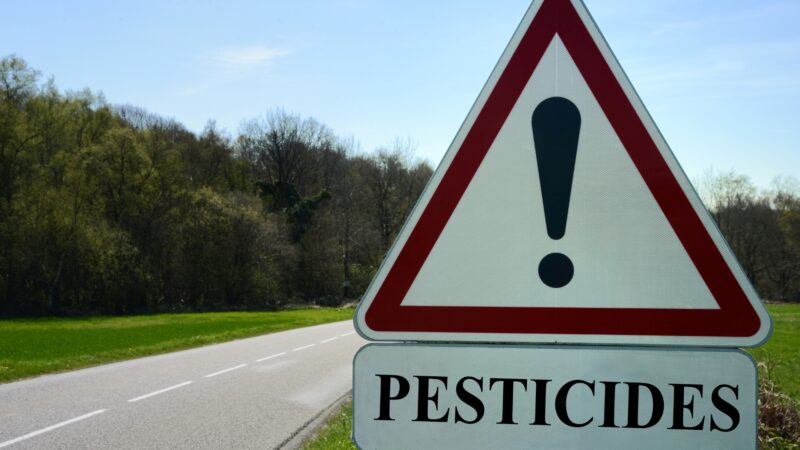
Pesticides can be harmful to pets. When these animals persistently inhale or ingest chemical contents, they are at high risk of experiencing pesticide poisoning. This is especially true when they are constantly exposed to organophosphate and carbamate pesticides.
Pet dogs and cats may exhibit symptoms of toxicity such as nausea, vomiting, loose bowel movements, and excessive drooling. If these symptoms continue to persist or become worst in the long run, it is advisable to bring them to the nearest veterinarian.
What Are the Toxic Effects of Pesticides?
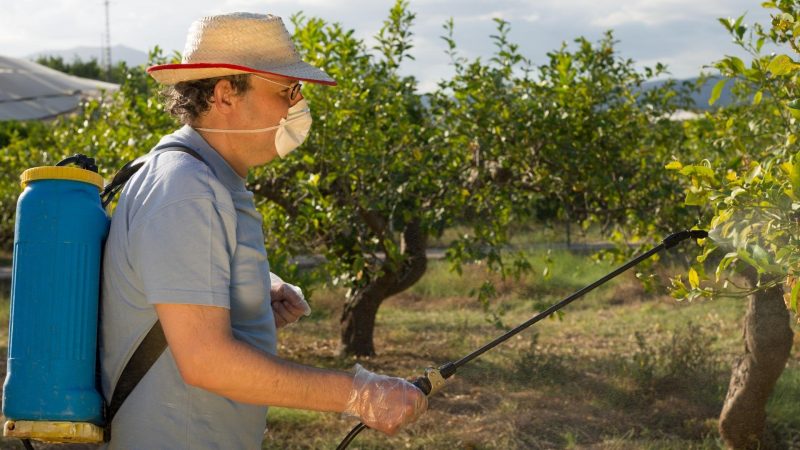
The toxic effects of pesticides may be acute or chronic in nature.
1. Acute Health Consequences
The affected individual may experience dizziness, nausea, diarrhea, rashes, blisters, stinging sensation on the eyes and skin, and in worst cases, permanent blindness and death.
2. Chronic Health Consequences
Its effects are far more dangerous and life-threatening. It may consist of medical conditions such as tumors, cancers, reproduction and infertility problems, birth defects, and problems with kidneys, liver, lungs, and other body organs.
The common kinds of cancers caused by pesticides are lymphoma, leukemia, and cancers of the breast, brain, testes, ovaries, and brain. It can also cause problems to the endocrine system when it disrupts and interferes with a person’s hormones and normal bodily functions.
Furthermore, children and infants are the most vulnerable to pesticide toxicity. This is because their body organs, level of immunity, and nervous system are still developing and have not yet matured.
Are Pesticides Safe in Your Home?
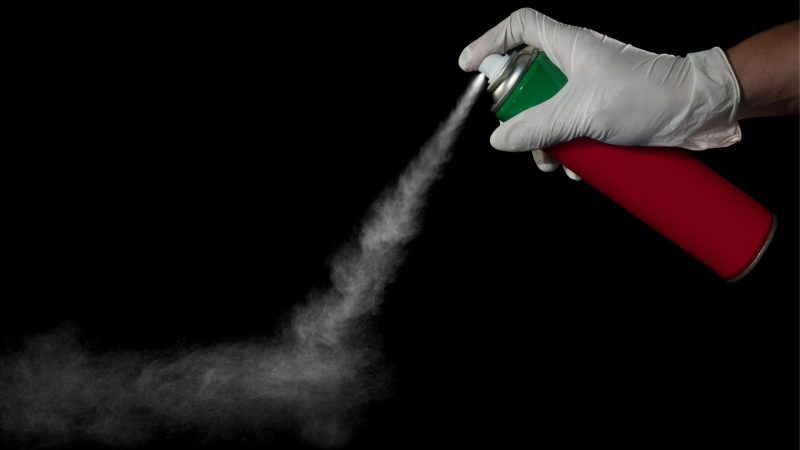
Pesticides can be safe in your home if they are kept and stored properly. This can be done by putting pesticide bottles in closed cabinets and spaces that are far from the reach of infants and children. To reduce the chance of accidents and mishaps, they must be positioned in inconvenient and inaccessible locations.
Also, pesticides can be safe inside a house if they are used properly. The said products are deemed to be utilized appropriately when they are applied according to the manufacturer’s label and instructions and in accordance with the correct time interval, dosage, and reason for application.
Is It Safe to Have Your House Sprayed for Bugs?
A house is safe to be sprayed for bugs if it is used according to the instructions and directives of the manufacturers. This means that the pesticides are utilized in accordance with the recommended dosage, time gap, and manner of application.
In applying these pest sprays, it is advisable to wear protective gear such as gloves and a face mask to lessen contact with its toxic contents. This will minimize the risk of experiencing fatal symptoms, such as problems in the nervous system, immune system, pulmonary system, and cardiovascular system.
How Long After Spraying Pesticides Is It Safe?
There is no clear time or scientific standard for how long it is safe to return to a pesticide-sprayed area. However, most pest control companies recommend that people should keep their distance from the sprayed areas for at least 6 to 24 hours. This is to ensure that there is less contact with pesticides.
Also, it is to prevent the accidental inhalation, touching, and ingestion of its chemical contents which are usually in their highest concentration.
It is a well-established fact that persistent and constant exposure to its active ingredients can cause adverse health effects and complications in the long run. So this risk must be minimized and prevented, if possible.
Furthermore, household and building owners must be advised that they must not immediately return to the sprayed surfaces after the application of pesticides to ensure their safety and protection.
Does Rain Wash Away Pesticides?

Rain will not necessarily wash away the pesticides, but it will just dilute the chemical substances that were applied. When pesticide applications are done outdoors, there is a tendency for the concentration of the treatment to be reduced. As a consequence, their potency and effectiveness may be affected. Thus, there may be a need to reapply the pesticide solution to achieve maximum efficacy.
On the contrary, some liquid pesticides dry quickly, so they may not be thoroughly affected by the rain. Also, there is a possibility that rain will destroy the nests of insects, so it could also be beneficial in getting rid of pests.
What Are Some Natural Alternatives to Pesticides?
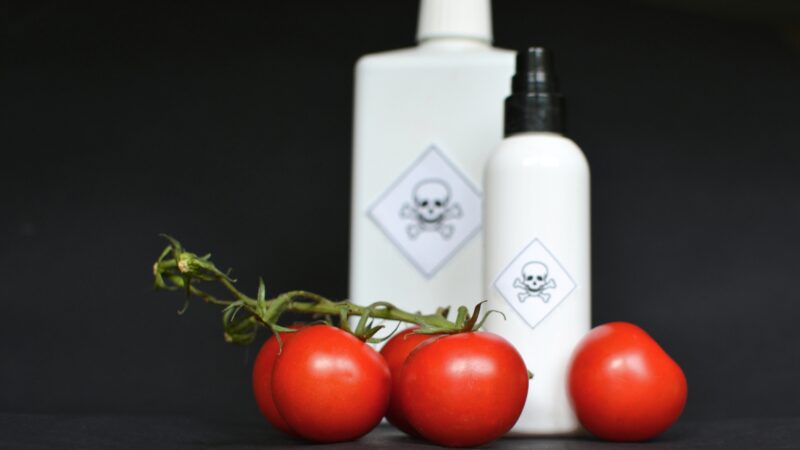
If you are looking for effective natural alternatives to pesticides, you may opt to use the following plants and herbs:
- Eucalyptus: It can be used as an oil. When applied to plants and leaves, it can kill unwanted insects and bugs.
- Onion and Garlic: These vegetables are not only essential in cooking and preparing food. They can also be utilized as a pest spray by mixing them with cayenne pepper and some drops of dishwashing soap.
- Salt: This kitchen condiment is not just an efficient insect killer but can also increase a plant’s absorption of nutrients like magnesium and phosphorus.
- Neem Leaf: This plant is popular for its insect and bug-repelling properties due to its strong scent and bitter taste. To use the neem leaves, mix their oil with water and liquid soap and spray them on the affected areas.
- Chrysanthemum Flower Tea: This flowering plant contains pyrethrum, a powerful chemical compound that can cause disruption and damage to an insect’s nervous system. It is typically used as a spray and is prepared by boiling the flowers, straining them after, and allowing them to be cool.
Furthermore, relying on a pest’s natural enemies can also be a good idea in getting rid of these unwanted creatures. Insect and bug predators can effortlessly kill and devour them, so there will be no need for the application of persistent and high amounts of pesticides.
List of Sources
What is a Pesticide? United States Environmental Protection Agency.
Basic Information about Pesticide Ingredients. United States Environmental Protection Agency.
Types of Pesticides. (2020). National Pesticide Information Center.
How Pesticides Work. (2016). University of Kentucky Department of Entomology.
- How to Get Rid of Copperheads | Practical Guide - August 27, 2023
- How to Get Rid of Corn Snakes | What Makes Them Aggressive? - August 27, 2023
- How to Get Rid of Alligators | Safety Measures and Removal Methods - July 16, 2023
